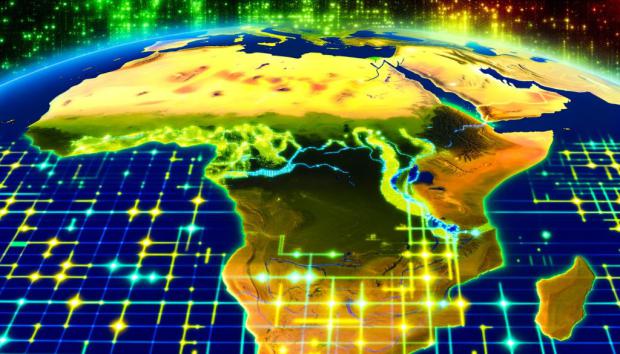
Breaking News
 THEY'LL DO WHATEVER IT TAKES TO ENSURE THIS STAYS HIDDEN
THEY'LL DO WHATEVER IT TAKES TO ENSURE THIS STAYS HIDDEN
 REPORT: This guy is still secretly running key parts of the CIA…
REPORT: This guy is still secretly running key parts of the CIA…
 Historic Aviation Engine Advance to Unlock Hypersonic Mach 10 Planes
Historic Aviation Engine Advance to Unlock Hypersonic Mach 10 Planes
 OpenAI CEO Sam Altman Pitches Eyeball-Scanning World ID to Bankers
OpenAI CEO Sam Altman Pitches Eyeball-Scanning World ID to Bankers
Top Tech News
 "No CGI, No AI, Pure Engineering": Watch Raw Footage Of 'Star Wars'-Style Speeder
"No CGI, No AI, Pure Engineering": Watch Raw Footage Of 'Star Wars'-Style Speeder
 NASA's X-59 'quiet' supersonic jet rolls out for its 1st test drive (video)
NASA's X-59 'quiet' supersonic jet rolls out for its 1st test drive (video)
 Hypersonic SABRE engine reignited in Invictus Mach 5 spaceplane
Hypersonic SABRE engine reignited in Invictus Mach 5 spaceplane
 "World's most power dense" electric motor obliterates the field
"World's most power dense" electric motor obliterates the field
 The Wearables Trap: How the Government Plans to Monitor, Score, and Control You
The Wearables Trap: How the Government Plans to Monitor, Score, and Control You
 The Streetwing: a flying car for true adventure seekers
The Streetwing: a flying car for true adventure seekers
Magic mushrooms may hold the secret to longevity: Psilocybin extends lifespan by 57%...
 Unitree G1 vs Boston Dynamics Atlas vs Optimus Gen 2 Robot– Who Wins?
Unitree G1 vs Boston Dynamics Atlas vs Optimus Gen 2 Robot– Who Wins?
 LFP Battery Fire Safety: What You NEED to Know
LFP Battery Fire Safety: What You NEED to Know
 Final Summer Solar Panel Test: Bifacial Optimization. Save Money w/ These Results!
Final Summer Solar Panel Test: Bifacial Optimization. Save Money w/ These Results!
China's Plan To Capture Africa With 'Surveillance Colonialism'

This could mean that China will have immense influence over politics and public life in Africa, potentially influencing election outcomes and swaying public opinion in favor of Beijing and its allies, according to the studies.
Some academics say it's happening already.
One investigation by a nonprofit studying the use of social media and other technology to target dissident groups worldwide concluded that a "largely invisible pattern" is transforming conflicts across Africa.
The Distributed AI Research Institute (DAIR) stated that using technology such as spyware to hunt political activists and employing facial recognition to track protesters represents "a new kind of mercenary force" in Africa, one that's largely shaped by companies controlled from Beijing.
Adio-Adet Dinika, researcher and affiliate fellow at the Bremen International Graduate School of Social Science in Germany, headed DAIR's Data Workers Inquiry project. It investigated incidents in countries including Ethiopia, Rwanda, and Zimbabwe.
Dinika's research revealed the existence of "digital sweatshops" in African cities and towns, including in Nairobi, Kenya; Accra, Ghana; and Gulu, Uganda, where workers are paid as little as $1.50 per hour to teach AI systems to recognize faces, moderate content, and analyze behavior patterns.
The Chinese regime is perpetrating what Dinika called "digital colonialism at its most insidious."
"I call this surveillance colonialism, the process by which foreign powers extract data and labor from African populations to build AI systems that ultimately police, repress, and destabilise those very populations," he wrote.
Among the new additions was CloudWalk, with which "the Zimbabwean government agreed to the installment of a mass surveillance network in Zimbabwe," the Treasury stated at the time.
"The agreement included a requirement that the Zimbabwean government send images it acquires from the surveillance network back to Cloudwalk's offices in China, so that Cloudwalk could improve the ability of its facial recognition software to recognize individuals based on skin pigmentation," the Treasury stated.



